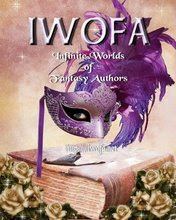Wow, I'm so excited to have Sherry Jones with me today! I'm in love with her historical romances, and just finishing up her latest book: Four Sisters, All Queens. My review will be coming up soon...
Now for the interview!
1. I'm so impressed by the way you can bring a certain time
period to life. How much research do you do before you write? How do you research for each book?
2.
I love how your
women characters are so strong despite the limitations they have to
live within. Who are some of your favorite women in history?
3. Where did you get the idea to write FOUR SISTER ALL QUEENS?
4. Can you tell us about the gorgeous cover? What did you think when you first saw it? What is it trying to portray?
5.
The L.A. times said you can "Make a plot dance" which is a phenomenal
compliment. Do you plot each book before you write it or during the
first draft?
I plot before I begin writing, after my research is mostly finished. That said, I always deviate from my outline as I write.
6. Have you always been interested in
history?
What
I like is period fiction and period films -- work that brings history
to life as "story," which is the stuff of which our lives are made.
I'd live in the future, when women instead of men rule the world and (therefore) wars are obsolete.
My
favorite composer is Dr. Robert Spittal, Washington State Composer of
the Year for 2011, an amazing writer of contemporary classical music
(and the great love of my life ;) ). His music is beautiful, exciting,
complex, just like the man. Oh, and he's also an accomplished flutist,
by the way!
7. If you could live in a different time period, what would it be?
8. I see you are also a classical pianist. (I'm a professional flutist by day). Who are some of your favorite composers?
In
those lessons, I developed a real love for classical music which has
never faded. Over time, I came to hold especially dear the music of the
French impressionists, including Claude Debussy and Maurice Ravel. From
my subsequent studies I've become enamored of Franz Lizst ("Liebestraum"
has to be one of the most beautiful pieces ever written.) Bob has
introduced me to Igor Stravinsky, whose "The Rite of Spring" is amazing
-- have you seen the choreographed dance? He's also piqued my interested
in the music of Arnold Schoenberg, whose works are now to be found on
some very trippy YouTube videos. I also adore ALL opera.
I also love works by Igor Stravinsky, Arnold Schoenberg, Claude Debussy, Maurice Ravel, Franz Lizst, and Brahms.
Yes, I listened to
lots of troubadour music and masses while writing FOUR SISTERS, ALL
QUEENS. And I collected quite a bit of Arabic music while writing THE
JEWEL OF MEDINA and THE SWORD OF MEDINA.
I
loved Philadelphia the most, because I really love the vibrancy and
culture of urban life. However, I did not have many friends in Philly,
despite living there for 6 years. People being what makes
somewhere a great place to
live, I was happiest in Missoula, Montana -- although I never learned to
love Montana winters. Now, in Spokane, I own a lovely house, small but
historic, my dream house, really. And my lover Bob has a teaching job
at Gonzaga University, so I doubt we'll leave anytime soon. I have many
friends here, too, and call it home. Because home, as they say, is where
the heart is.
9. Do you listen to music from the time period you are writing about when you write?
10. You've lived in a lot of places in your life! Where did you like living the most and why?
Amid the lush valleys and fragrant wildflowers of Provence, Marguerite, Eléonore, Sanchia, and Beatrice have learned to charm, hunt, dance, and debate under the careful tutelage of their ambitious mother—and to abide by the countess’s motto: “Family comes first.”
With Provence under constant attack, their legacy and safety depend upon powerful alliances. Marguerite’s illustrious match with the young King Louis IX makes her Queen of France. Soon Eléonore—independent and daring—is betrothed to Henry III of England. In turn, shy, devout Sanchia and tempestuous Beatrice wed noblemen who will also make them queens.
Yet a crown is no guarantee of protection. Enemies are everywhere, from Marguerite’s duplicitous mother-in-law to vengeful lovers and land-hungry barons. Then there are the dangers that come from within, as loyalty succumbs to bitter sibling rivalry, and sister is pitted against sister for the prize each believes is rightfully hers—Provence itself.
From the treacherous courts of France and England, to the bloody tumult of the Crusades, Sherry Jones traces the extraordinary true story of four fascinating sisters whose passions, conquests, and progeny shaped the course of history.


























1 comment:
Wonderful description of the novelist at work. Interesting, would live in the future, and also an interesting choice of an admired character. Such a great imagination.
Post a Comment